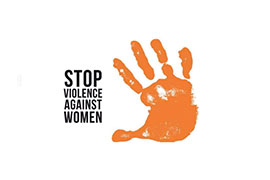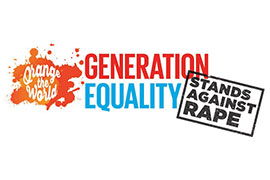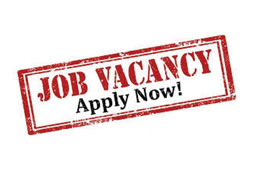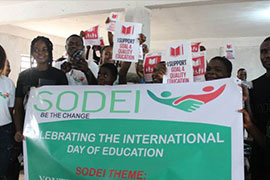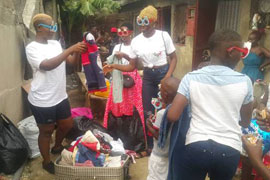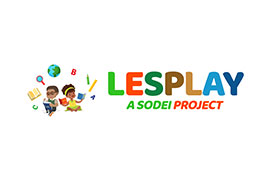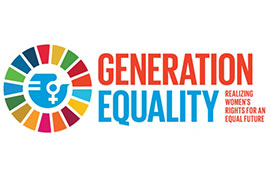Solidarity Development Initiative (SODEI) joined the rest of the world to commemorate the International Women’s Day celebrated this year under the theme “I am Generation Equality: Realizing Women’s Rights”. On March 7th 2020, SODEI organized an event to celebrate this day in Limbe, Cameroon with a theme of its own entitled “Overcoming Generational Inequalities” to support the original theme of this year’s celebrations. The event was attended by women, girls and boys between the ages of 11 and 36.
The focus of the day’s event was to understand the ways of overcoming generational inequalities which negatively affect women and girls, and the various accompanying types of violence they face in society. The event which was fashioned as a lesson was accomplished in four interactive phases which gave participants the opportunity to grasp new information and be able to express what they learned by asking questions and sharing experiences.

To initiate discussions, the reason and importance of the celebration of women’s day were examined to give participants perspective of the day’s event. Susan Maloba, SODEI’s Program Manager expressed the significance of this day for women to seize the opportunities available to them and continue to be a positive force for development in their families, communities and nations. As she reiterated “The time for women to take initiative and be proactive is now”.
The second phase brought discussions on the key areas which affect women and girl’s rights and opportunities. One of the main issues that affect women in Cameroonian society like everywhere else is Violence against Women, which participants learned went beyond physical violence suffered by women in domestic milieus, but included systems which have been established to ensure that women are limited in the goals and objectives they can achieve and stay subject to menfolk in the society.
This year’s international women’s day theme: “I am generation equality; Realizing women’s rights” it was said, seeks to explain that, the people responsible for the change in women’s circumstances is not the government or an individual, but it is the society as a whole which has to put an end to every form of disrespect, discrimination and violence on women and give women an equal opportunity to participate in sustainable development.
The third phase of the program was crucial and meaningful because participants learnt the areas in which women’s participation should be encouraged. Governing, career orientation, subsidized large scale farming projects, education, academics, business, information and technology were identified as the main areas where Cameroonian women and girls should benefit from more opportunities if we were to achieve “Generation Equality”. Ayuk Tataw Emilie, one of SODEI’s Program Coordinators, emphasized the importance of women’s day celebrations because they serve to throw more light on the different areas in which women should be empowered that remain very much unexploited.
The fourth phase was a very vital part of the whole session as it was the most interactive part. Participants expressed the lessons they had learned from the discussions and a commitment to apply them in their day-to-day lives. Of these lessons the most important retained were first that women and men, boys and girls are equal and should be treated equally. Secondly, it is our collective responsibility to make sure women and girls are not disrespected, discriminated on or undergo any prejudice based on their identity as such. Thirdly and most importantly, if we are to live peacefully in a society, we have to ensure that the systems that serve to undermine women and their importance in society are dismantled and we can all live like equal citizens and members of our society, enjoying opportunities and contributing to the development of our nation on equal footing.

In the light of these discussions, the participation and outcome, the event was a very successful one and passed on a very important message about International Women’s Day in conjunction with its importance to women and girls in Cameroon. This successful session was planned and coordinated by SODEI’s dedicated volunteers and members of Staff, Susan Maloba, Ayuk Tataw Emilie and Nicole Mbiatem on behalf of SODEI, Cameroon. The parting affirmation for the day was “We are women, we are unique, we are strong!”




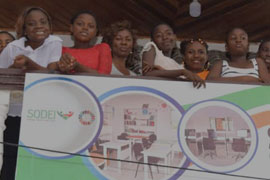
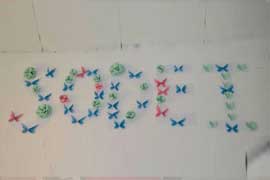
 My name is Tebah Ruth Enjoh but to my family and friends, I am Raël. I am 19 years old and I obtained my Advanced Level GCE certificate last year. I was the Art president and social personnel of the student administration of Government High School Limbe, where I studied the S3 (Biology, Chemistry & Mathematics) series in science. I live in Limbe, a city in the Southwest region of Cameroon.
My name is Tebah Ruth Enjoh but to my family and friends, I am Raël. I am 19 years old and I obtained my Advanced Level GCE certificate last year. I was the Art president and social personnel of the student administration of Government High School Limbe, where I studied the S3 (Biology, Chemistry & Mathematics) series in science. I live in Limbe, a city in the Southwest region of Cameroon. My aunt told me about an art seminar that she wanted me to attend in November so I was really excited about it because she said I will learn a lot from there. One day towards the end of October 2019, she came to my house and said dress up and let’s go we are meeting those people today so I dressed up and we then left. But when I arrived, I saw it was not a seminar but a meeting for the preparation of the LESPLAY project. From that moment, I became a part of SODEI. I was happy because I saw an opportunity to be useful, to exercise and better my artistic skills. I was really looking forward to be part of SODEI and God answered my prayers when I was given the opportunity to handle the creative art department of LESPLAY a SODEI project.
My aunt told me about an art seminar that she wanted me to attend in November so I was really excited about it because she said I will learn a lot from there. One day towards the end of October 2019, she came to my house and said dress up and let’s go we are meeting those people today so I dressed up and we then left. But when I arrived, I saw it was not a seminar but a meeting for the preparation of the LESPLAY project. From that moment, I became a part of SODEI. I was happy because I saw an opportunity to be useful, to exercise and better my artistic skills. I was really looking forward to be part of SODEI and God answered my prayers when I was given the opportunity to handle the creative art department of LESPLAY a SODEI project. When I was 7years old the teacher would often give us drawing assignments to do at home. So when she first gave the assignment which was to draw a car and name its parts, we were to use the weekend for that so I did not really believe I could do it until when I finally took the courage to draw so I will not be punished then I realized that I could actually draw so when I came to class the teacher congratulated me. From then on for the other assignments she gave she would use my drawing to explain things in class and other students would ask me many times to draw for them.
When I was 7years old the teacher would often give us drawing assignments to do at home. So when she first gave the assignment which was to draw a car and name its parts, we were to use the weekend for that so I did not really believe I could do it until when I finally took the courage to draw so I will not be punished then I realized that I could actually draw so when I came to class the teacher congratulated me. From then on for the other assignments she gave she would use my drawing to explain things in class and other students would ask me many times to draw for them. I will make sure to reach out to as many children and young people as possible with a passion for arts so I can encourage and guide them so they don’t give up on their dreams or throw away their talents.
I will make sure to reach out to as many children and young people as possible with a passion for arts so I can encourage and guide them so they don’t give up on their dreams or throw away their talents.

